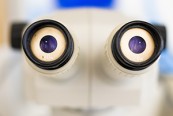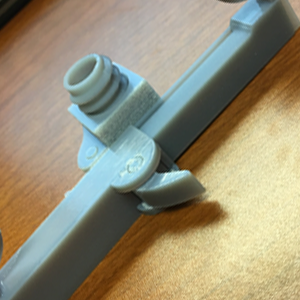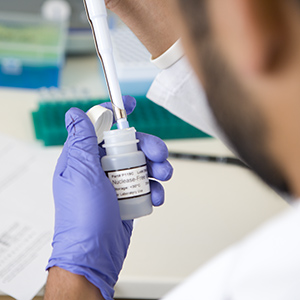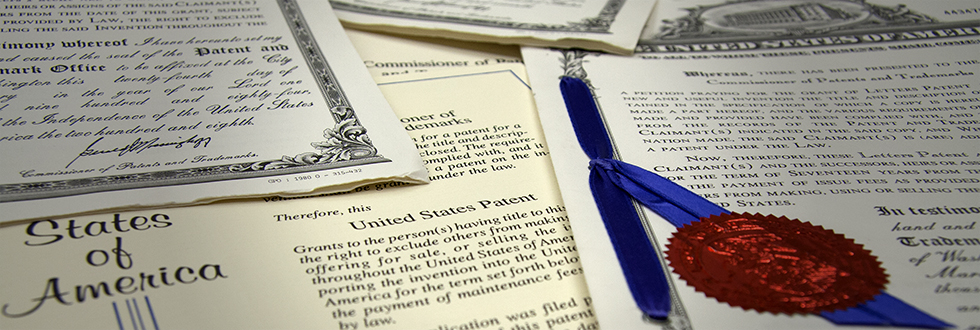
OMAHA, Neb. (March 14, 2024)—For the seventh consecutive year, the University of Nebraska landed among the world’s top 100 universities for securing United States patents.
All told, innovations created by faculty, students and staff from the University of Nebraska system accounted for 46 U.S. patents issued in the 2023 calendar year.
“Innovation is a key facet in any forward-looking enterprise, but especially in health care,” UNMC chancellor Jeffrey Gold, MD, said. “The patents received by UNMC scientists and clinicians set a blueprint, not only for the lifesaving and life-transforming new discovery’s of diagnostics, medications and devices they create, but for a path to improved health outcomes for citizens of Nebraska, the United States and the world. This defines the ‘bench to bedside’ research at UNMC.”
Nebraska’s 46 patents is one better than the 45 secured the previous year, which led to a 5-spot jump to 73rd among the world in 2023. Narrowing the lens to the U.S. only, the University of Nebraska is 55th, producing the same number of patents as its Big Ten colleagues Rutgers and Indiana.
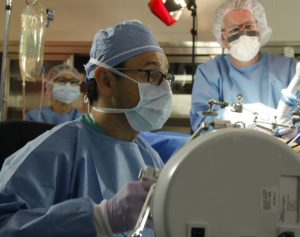
Former UNMC surgeon Dmitry Oleynikov (left) and UNL engineer Shane Farritor (right) test an early prototype of their surgical robotic platform during a trial in Omaha several years ago. Their collaboration created a startup company, Virtual Incision, which hopes to make major surgery—like a bowel resection—a laparoscopic procedure. The FDA recently approved their innovation for use in human patients.
“For us to appear on a list highlighting the most innovative Universities in the world is a big deal. Research and Innovation at the University of Nebraska continues to grow and produce new discoveries at a rapid pace, and each of these patents has potential to make the world a better place,” said Michael Dixon, PhD, president and CEO at UNeMed, the technology transfer and commercialization for UNMC and UNO. “However, in addition to the number of patents issued, another key metric is the number of those patents that have been licensed by a company for further development. At UNeMed, around 60 percent of our issued patents have been licensed and the companies that are developing that technology are investing significant private dollars to create products that will improve our lives.”
UNMC’s patented technologies in 2023 includes six patents related to Virtual Incision — a UNeMed startup built on surgical robotic innovations developed via a cross-campus collaboration between UNMC and UNL.
Virtual Incision gained some recent national media attention when its core technology, MIRA, successfully performed tests aboard the International Space Station in early February. MIRA, which stands for Miniaturized In Vivo Robotic Assistant, is currently under review for FDA clearance.
Another surgery-related patent, for a device called the Aquablade, was developed by Jason MacTaggart, MD, and Alexey Kamenskiy, PhD. AquaBlade is a device that uses a specialized cutting tool that employs a high-pressure water jet to repair life-threatening tears in artery walls, and could also help remove previously deployed stents.
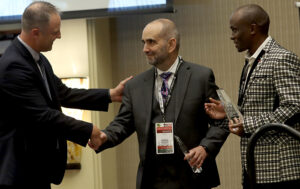
During 2022 Innovation Awards ceremony on Thursday, Oct. 13, 2022, at the Hilton Omaha, UNeMed President & CEO Michael Dixon, PhD, (left) presents UNMC researchers Howard Gendelman, MD, (center) and Benson Edagwa, PhD, with the Startup of of the Year award in recognition of the recent success of Exavir Therapeutics, a company they co-founded based on the antiretroviral therapeutics they’ve developed at UNMC.
Another pair of UNMC patents relate to another UNMC startup, Exavir Therapeutics, which was created on the innovative work of Howard Gendelman, MD, and Benson Edagwa, PhD. Exavir is focused on developing ultra-long acting therapies for the treatment of HIV. Current treatment regimens for HIV often require a strict schedule of daily doses. But Exavir’s technology could transform HIV treatment to just a single dose once or twice a year.
Another patent was issued for UNMC researcher Dong Wang’s, PhD, drug delivery technology called ProGel, which is liquid at room temperature and becomes a gel when warmed to body temperature. His startup, Ensign Pharmaceutical, is currently developing a ProGel formulation of a common steroid, dexamethasone, for the treatment of osteoarthritis-related pain. Currently, anti-inflammatory steroids like dexamethasone are used to provide immediate relief from debilitating pain and swelling caused by osteoarthritis. Unfortunately, the effect is short-lived, providing relief for just a few days. ProGel, however, could extend that effectiveness for months.

Dong Wang, PhD
Additional UNMC patents in 2023 include new approaches for creating arteovenous fistulas; a new diagnostic for coronary artery disease; an improved method for using CRISPR, a DNA slicing tool common in research applications; new approaches for treating various cancers; and several other devices that range from nanofiber-based materials to a screening tool that helps assess a patient’s risk of complications prior to surgery.
The University of California system — which includes 10 major campuses — dominated the list with 546 U.S. Patents. MIT was a distant second with 365 patents and the University of Texas system — and its nine campuses — was third at 235.
Purdue led all Big Ten institutions with 198 U.S. patents, followed by Michigan (136), Wisconsin (134), Northwestern (108), Maryland (108), Minnesota (96), Illinois (89), and Ohio State (87).
Trailing Nebraska were Michigan State (45) and Penn State (40). Iowa was not listed among the top 100.




